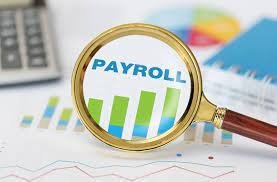Financial audits are an essential part of ensuring compliance, accuracy, and transparency in business operations. Whether your business is undergoing an internal review or an external audit by regulatory authorities, having accurate documentation is critical. Among the most valuable documents for audits are pay stubs. These small records of employee earnings and deductions often serve as vital pieces of evidence that can confirm payroll accuracy and protect businesses from compliance risks.
In this article, we’ll explore why pay stubs are important during financial audits, how they simplify the process, and best practices for using them effectively.
What Is a Pay Stub?
A pay stub, also known as a paycheck stub or earnings statement, is a document provided to employees that details:
- Gross wages (total earnings before deductions)
- Net pay (take-home pay after deductions)
- Tax withholdings (federal, state, and local)
- Other deductions (health insurance, retirement contributions, wage garnishments, etc.)
- Employer contributions (like 401(k) matching or healthcare)
- Work hours and pay rate (for hourly employees)
Because it provides a detailed breakdown of compensation, the pay stub serves as a transparent record for both employees and auditors.
Why Are Pay Stubs Important During Financial Audits?
During financial audits, accuracy and compliance are the main focus. Auditors must confirm that payroll data matches financial records and legal requirements. Pay stubs provide a reliable way to:
1. Verify Payroll Accuracy
Auditors often check whether the payroll amounts recorded in financial statements match the payments employees actually received. Pay stubs show exactly how much was earned, withheld, and paid. This transparency helps confirm payroll calculations and reduces the risk of discrepancies.
2. Ensure Compliance With Labor Laws
Labor laws require accurate wage payment and proper reporting of deductions such as taxes and benefits. Pay stubs provide proof that the business is complying with minimum wage laws, overtime regulations, and tax withholdings.
3. Confirm Tax Withholdings
Pay stubs break down federal, state, and local tax deductions. This allows auditors to cross-check payroll records against tax filings, ensuring that all amounts withheld were reported correctly to tax authorities.
4. Track Benefits and Contributions
Businesses often contribute to employee benefits such as retirement plans, healthcare, and paid leave. During audits, pay stubs confirm that employer contributions were correctly calculated and funded.
5. Provide Transparency and Accountability
If auditors identify discrepancies in payroll, pay stubs act as the first line of evidence. They make it easier to trace financial flows and ensure that employee compensation is accurate and transparent.
Common Audit Scenarios Where Pay Stubs Are Essential
Pay stubs play a crucial role in a variety of audit situations. Some common examples include:
- Tax Audits – Auditors verify that reported employee income matches actual payments and withholdings.
- Labor Department Audits – Pay stubs confirm compliance with wage and hour laws, including overtime.
- Internal Financial Reviews – Businesses use pay stubs to ensure payroll expenses align with budgets and forecasts.
- Loan or Investment Audits – Investors and lenders may request payroll records, including pay stubs, to confirm a company’s financial health and employee costs.
Benefits of Maintaining Organized Pay Stubs for Audits
Keeping pay stubs properly organized benefits both employers and employees during audits. Here’s how:
- Faster Audit Process – Readily available pay stubs reduce the time auditors spend searching for payroll records.
- Reduced Risk of Penalties – Inaccurate or missing payroll records can lead to fines. Pay stubs ensure everything is documented.
- Employee Trust – When employees know their pay is accurate and well-documented, it builds trust and reduces disputes.
- Clear Financial Reporting – Pay stubs help reconcile payroll records with accounting books, ensuring financial statements are correct.
Digital vs. Paper Pay Stubs in Audits
With technology advancing, many companies now use digital pay stubs instead of traditional paper ones. Both have benefits during audits:
- Paper Pay Stubs – Provide a physical record but may be harder to store and organize long-term.
- Digital Pay Stubs – Easier to access, search, and store securely. Cloud-based payroll systems allow auditors to retrieve data quickly.
For most businesses, digital pay stubs offer greater efficiency and security during audits.
Best Practices for Using Pay Stubs in Audits
To make pay stubs more effective during financial audits, businesses should follow these best practices:
- Maintain Accurate Records – Always double-check payroll entries before issuing pay stubs.
- Keep Pay Stubs Organized – Store them in a secure, well-structured system (digital or physical).
- Retain Records for the Required Timeframe – Most states require businesses to keep payroll records for at least 3–7 years.
- Ensure Compliance With State Laws – Some states require specific information (like employer address or pay periods) on pay stubs.
- Use Payroll Software or Pay Stub Generators – Automated systems reduce errors and make audits smoother.
How Pay Stub Generators Simplify Audit Preparation?
Free or paid pay stub generators can save time and ensure accuracy. They create professional, detailed pay stubs that include all necessary information for employees and auditors. Benefits include:
- Accuracy in calculations (taxes, overtime, benefits)
- Consistency across all employee pay stubs
- Easy access to digital copies during audits
- Customization to meet state and federal requirements
Using these tools not only simplifies payroll but also provides auditors with reliable, well-organized documentation.
Final Thoughts
Financial audits can be stressful, but pay stubs make the process much smoother. They serve as concrete evidence of payroll accuracy, tax compliance, and employee compensation. Whether your business is small or large, maintaining accurate and organized pay stubs is one of the best ways to prepare for audits and avoid costly mistakes.



